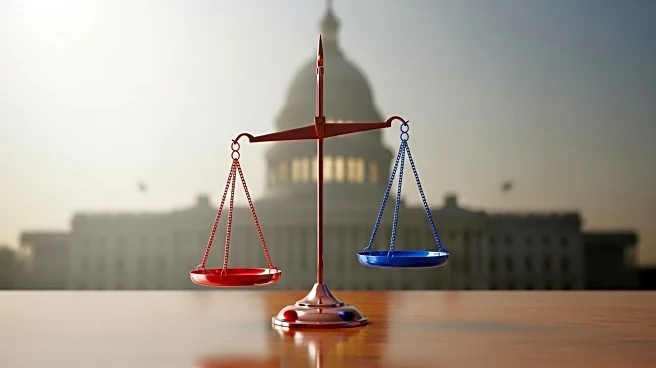What's Happening?
The U.S. government has entered a shutdown following the inability of President Trump and Congress to reach an agreement on funding. The Senate is set to reconvene to vote on two bills that were not passed the previous night. This development marks a significant impasse between the executive branch and legislative leaders, as they struggle to find common ground on budgetary allocations. The shutdown affects various federal operations and services, leading to potential disruptions across multiple sectors.
Why It's Important?
A government shutdown has wide-ranging implications for the U.S. economy and public services. Federal employees may face furloughs, and essential services could be delayed or suspended, impacting millions of Americans. The shutdown also reflects deeper political divisions, potentially influencing public opinion and voter sentiment. Economic stakeholders, including businesses and investors, may experience uncertainty, affecting market stability and economic forecasts.
What's Next?
The Senate's upcoming vote on the stalled bills will be crucial in determining the duration of the shutdown. Political leaders are expected to engage in negotiations to resolve the budgetary deadlock. The outcome of these discussions will be closely monitored by various stakeholders, including federal employees, businesses, and the general public, who are directly affected by the shutdown.
Beyond the Headlines
The shutdown highlights ongoing challenges in U.S. governance, including partisan gridlock and the complexities of budget negotiations. It raises questions about the effectiveness of current political processes and the ability of leaders to address critical issues collaboratively. Long-term implications may include shifts in political strategies and public trust in government institutions.








